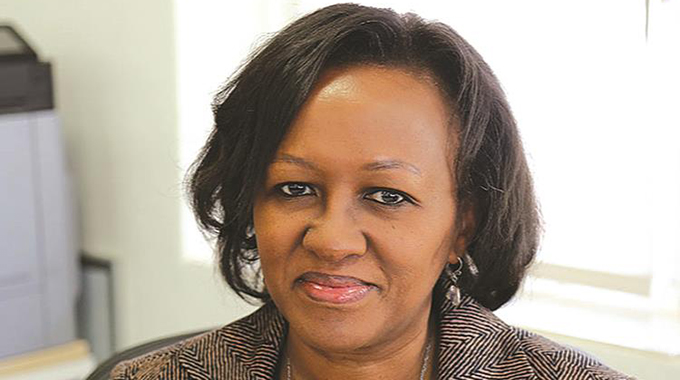World Bank manager speaks on state enterprises

Government officially launched the Public Entities Corporate Governance Act last Wednesday. The law seeks to enforce a culture of good corporate governance in State Enterprises and parastatals (SEPs).
Further, the Act seeks to put in place mechanisms to ensure SEPs operate optimally, and not turn to Government for funding annually. Our Senior Reporter Farirai Machivenyika (FM) interviewed World Bank country manager Ms Mukami Kariuki (MK) on the law and the performance of SEPs.
FM: Zimbabwe has officially launched the Public Entities and Corporate Governance Act. How would you describe the performance of State Enterprises and Parastatals in the country?
MK: I would say it’s a mixed performance. As you heard from the Chief Secretary (to the President and Cabinet, Dr Misheck Sibanda) and the Minister (of Finance and Economic Development, Professor Mthuli Ncube), in the early 1990s the SEP’s contribution to the Gross Domestic Product (GDP) was 40 percent but now it is below 10 percent largely due to the mixed performance I am referring to.
So you have some that are performing at the level of private companies and some that are performing well below that performance. So this is a tool that the minister said would be launched next year, where they will rank all SEPs as part of the effort to try to benchmark performance across all the entities and allow them to start to pull up their performance in the various areas prescribed by the Act. So it’s a mixed performance; some are far behind and require help and others are doing well in terms of their performance.
FM: In your view, will this Act lead to the improvement in the operations of the SEPs?
MK: It has the potential to do so and as was mentioned, it is really incumbent on the participants (SEPs managers and boards), who are here representing those SEPs, to follow the letter of the law.
As the minister said, this is taking action on the things required, setting up their strategies, putting in place performance contracts where they outline what they are committing to deliver; that will all be part of that process. So the guidelines which have been issued will set out what it is that they should do to change from the past practice to the future vision that is laid out in the Act.
FM: What other areas need improving to ensure SEPs perform as desired?
MK: Well, I think the main area is the relationship between the parent ministry and the SEP in terms of allowing them to operate as SEPs with minimum supervision or interference, if you may call it that, from the ministries that are responsible for the SEP. So that will take time. It requires a change of mindset and change of behaviour.
FM: What role can the World Bank play in these reforms?
MK: Like I said, we have already been involved in shaping the Act itself and helping to prepare these guidelines that are going to be issued to the SEPs. So we are going to continue to help with the establishment of a website onto which curriculum vitaes of potential directors are posted so that they can become part of the decision-making teams and from which the boards of SEPs will be drawn.
So that is an important thing for the public to be aware of, so that if there are people interested or aspiring to become board members that platform exists.
We will continue to help with the monitoring of the performance, financial performance as well as the performance in terms of the performance contracts and how they are being implemented.
So this exercise that has been mentioned of ranking is something that we will continue to support. This will provide transparency for Zimbabweans on how their SEPs are performing and also allow them to put pressure so that the performances are improved all the time.










Comments